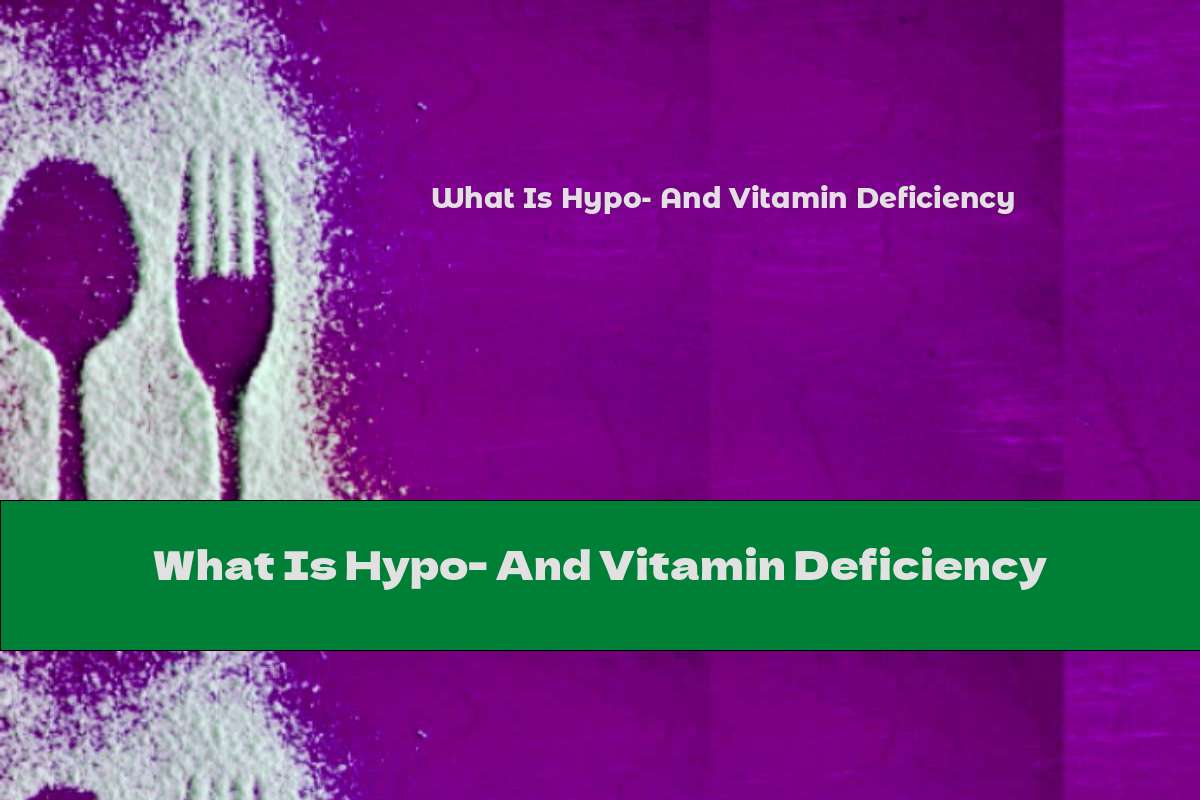What Is Hypo- And Vitamin Deficiency
 Author: Victoria Aly
Time for reading: ~2
minutes
Last Updated:
February 17, 2026
Author: Victoria Aly
Time for reading: ~2
minutes
Last Updated:
February 17, 2026

Vitamins are very important for humans, because they trigger most of the physiological reactions in our body. The lack of vitamins is reflected in the well-being and appearance, condition and functionality of tissues and internal organs, and make our body very vulnerable to the action of external stimuli.
Vitamins are very important for humans, because they trigger most of the physiological reactions in our body. The lack of vitamins is reflected in the well-being and appearance, condition and functionality of tissues and internal organs, and make our body very vulnerable to the action of external stimuli.
Avitaminosis and hypovitaminosis are serious deviations in the functioning of the body. Very often, we do not notice the absence or significant lack of vitamins in our own body, referring to other diseases.
The main cause of vitamin deficiency and hypovitaminosis is insufficient or poor-quality nutrition, or non-absorption of one or another vitamin by our body.
What is the difference between vitamin deficiency and hypovitaminosis?
Avitaminosis is a condition of the body when one or more (polyvitaminosis) vitamins are completely absent in the body . If a vitamin or vitamins are present, but their quantity is insufficient, then this is hypovitaminosis .
Avitaminosis Hypovitaminosis Nutritional factors of occurrence In small children — artificial feeding with incorrect products or unadapted mixtures, untimely start of supplementary feeding, its insufficient amount. Taking antivitamins — substances that prevent the absorption of vitamins (sulfanilamides, anticoagulants, chemotherapeutic drugs). A diet that does not contain vitamins , eating poor-quality food, malnutrition or starvation. A diet that contains few vitamins . Consumption of products that, as a result of incorrect or long storage, or irrational culinary processing, have lost most of the vitamins . Disturbed balance of vitaminsin the diet. Insufficient amount of protein and fat food. Internal factors of occurrence Disturbances in digestive processes Disturbances in the work of digestive organs. Disturbances in metabolism and microflora (presence of digestive enzymes). Individual characteristics of metabolism (childhood and old age, pregnancy and breastfeeding, pathological conditions). Violation of the reactions of the conversion of vitamins into an active form - coenzymes. Malformation or defects of vitamin assimilation mechanisms . Violation of the permeability of cells for vitamins . Hereditary defective violations of enzyme and transport systems of vitamin assimilation, changes in the assimilation of vitamins and the processes of formation of their active forms.External factors of occurrence Adverse environmental impact (pesticides, heavy metals, increased radiation background). Extreme conditions for the body (stress, low temperatures, high physical exertion, etc.). Harmful habits (smoking, alcohol). Diseases Pathogenic intestinal microflora, parasites in the digestive tract, infectious diseases. Endocrine pathologies, liver diseases. Diseases that accelerate and increase the removal of vitamins from the body (acute intestinal infections, kidney diseases, food poisoning). Dysbacteriosis.Avitaminosis and hypovitaminosis are pathological and very serious conditions of the body. Such deviations can cause destructive tissue changes in a short time, which can leave an impression on the functionality of our body throughout the rest of our lives. For this reason, it is very important to pay sufficient attention to the completeness of the diet, its balance in terms of the content of nutrients, vitamins and minerals, and not to get carried away by monodiets. As for the currently very popular multivitamins and dietary supplements, you should consult a doctor about their consumption, and the main part of vitamins for the body should still be provided through natural food products.
Related Articles
- The Ultimate Guide to Vitamin E: Benefits, Sources, and Recipes
- The Ultimate Guide to Vitamin E in Nutrition: Benefits, Sources, and More
- The Ultimate Guide to Vitamin B12 in Nutrition
- The Ultimate Guide to Vitamin E: Benefits, Sources, and Recipes
- The Ultimate Guide to Vitamin E: Benefits, Sources, and Recipes